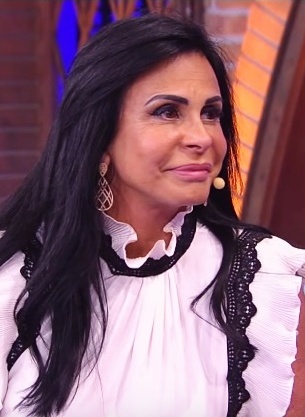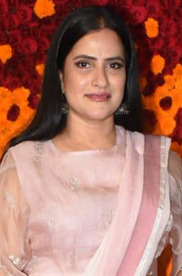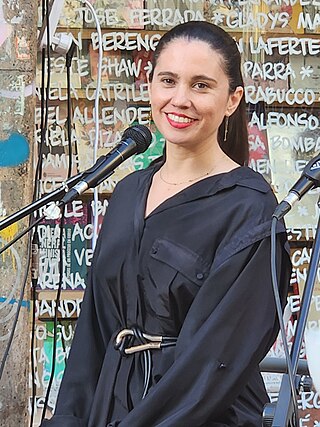Related Research Articles

Gloria Fowles, known professionally as Gloria Gaynor, is an American singer, best known for the disco era hits "I Will Survive" (1978), "Let Me Know " (1979), "I Am What I Am" (1983), and her version of "Never Can Say Goodbye" (1974).

Sheila Cecilia Escovedo, known under the stage name Sheila E., is an American singer and drummer. She began her career in the mid-1970s as a percussionist for the George Duke Band. After separating from the group in 1983, Sheila began collaborating with Prince and launched a solo career, starting with the release of her debut album in 1984, which included her biggest hit "The Glamorous Life". She also saw a hit with the 1985 single "A Love Bizarre". She is sometimes referred to as the "Queen of Percussion". In 2021, she received a Latin Grammy Lifetime Achievement Award.

Diana Ross is an American singer and actress. Known as the "Queen of Motown Records", she was the lead singer of the vocal group the Supremes, who became Motown's most successful act during the 1960s and one of the world's best-selling girl groups of all time. They remain the best-charting female group in history, with a total of 12 number-one pop singles on the U.S. Billboard Hot 100, including "Where Did Our Love Go", "Baby Love", "Come See About Me", "Stop! In the Name of Love", "You Keep Me Hangin' On", and "Love Child".

Tiffany Renee Darwish, known mononymously as Tiffany, is an American pop singer. Her 1987 cover of the Tommy James and the Shondells song "I Think We're Alone Now" spent two weeks at No. 1 on the Billboard Hot 100 chart, and was released as the second single from her debut studio album Tiffany.

Patricia Louise Holte, known professionally as Patti LaBelle, is an American R&B singer and actress. She has been referred to as the "Godmother of Soul".

Vicki Sue Robinson was an American singer, closely associated with the disco era of late 1970s pop music; she is most famous for her 1976 hit, "Turn the Beat Around".
Rachel Sweet is an American singer, television writer and actress.

Marta Katarzyna Wiktoria Wiśniewska, professionally known as Mandaryna, is a Polish singer, dancer and actress. She rose to fame as the dancer of Polish pop group Ich Troje, and the partner of its leader, Michał Wiśniewski. She embarked on a singing career in 2004, covering Whitesnake's "Here I Go Again", which became a hit in Poland. Her first two albums, Mandaryna.com and Mandarynkowy sen, released in 2004 and 2005, respectively, were met with commercial success. In 2005, Mandaryna sparked a major controversy during her performance at Sopot Festival, which exposed her alleged lack of vocal talent. Nonetheless, the performed song "Ev'ry Night" became a massive hit and remains arguably her best-known song to date.

Scopitone is a type of jukebox featuring a 16 mm film component. Scopitone films were a forerunner of music videos. The 1959 Italian Cinebox/Colorama and Color-Sonics were competing, lesser-known technologies of the time one year before the Scopitone in France.

Pattie Brooks is an American singer most frequently associated with the disco era.

Maria Odete Brito de Miranda de Souza, known professionally as Gretchen, is a Brazilian singer and media personality. Gretchen is the older sister of Brazilian country singer Sula Miranda, and mother of Brazilian politician Thammy Miranda. She is known for reinventing her music and image, and for keeping her autonomy within the music industry. She has a vast musical repertory, and has been the source of some controversy throughout her career. Referred to as the "Rainha do Bumbum", Gretchen has sold 15 million records over nearly four decades.

Beatrice Melba Smith known by her stage name Melba Moore, is an American singer and actress.

Niatia Jessica Kirkland, better known by her stage name Lil Mama, is an American rapper, singer, songwriter, and dancer. She experienced top 10 Billboard placements at 17 with her debut album VYP (2008), which debuted at number 25 on the Billboard 200. The album spawned her four major singles including her staple song and dance anthem "Lip Gloss", earning her two Teen Choice Awards and Monster Single of the Year nominations at the MTV Video Music Awards. Kirkland gained further attention in pop music after a collaboration with Avril Lavigne for the remix of her hit single "Girlfriend".

Eden Wilson, best known as Eden xo, is an American singer, songwriter, actor and dancer. Described by the BBC as a "colourful, ambitious, out-and-out pop princess," she has been compared to Gwen Stefani and early Madonna.

Katerina Alexandre Hartford Graham is an American actress, singer, dancer, and activist. She played Bonnie Bennett on The CW supernatural drama series The Vampire Diaries (2009–2017). Her film credits include The Parent Trap (1998), 17 Again (2009), The Roommate (2011), Honey 2 (2011), Addicted (2014), and All Eyez on Me (2017). In music, Graham has released two extended plays and four studio albums.

Antonia Christina Basilotta, better known by her stage name Toni Basil, is an American singer, choreographer, dancer, actress, and director. Her cover of the song "Mickey" topped the charts in the US, Canada and Australia and hit the top ten in several other countries.

Nocturna is a 1979 American gothic comedy-horror film conceived by star Nai Bonet and written and directed by Harry Hurwitz, who was credited as "Harry Tampa". It premiered in France at the Paris Festival of Fantastic Films on March 1, 1979, to coincide with its U.S. release. The film is copyrighted 1978 in the opening and ending credits, as it was filmed in October and November 1978.

Sona Mohapatra is an Indian singer, music composer and lyricist. In addition to her own material, Mohapatra has recorded remixes of songs by David Bowie, with "Let's Dance", and INXS, with "Afterglow", with the latter proving particularly successful.

Javiera Alejandra Mena Carrasco is a Chilean singer, songwriter, musician, and record producer based in Madrid, Spain. She started her musical career in the Chilean indie music scene in 2001 and achieved wider success after the release of her debut studio album Esquemas Juveniles (2006). Her musical style tends to be synthesized electronic sound, although in her career beginnings she made acoustic-oriented songs, accompanied solely by guitar.
Color-Sonic was a type of visual jukebox developed in the United States in the 1960s. They were the first ones to use continuous loop cartridges, which were both more durable and more easily replaced than the film reels used by their competitors, Cinebox and Scopitone. The Color-Sonic films were shot on 35 mm, as opposed to the 16 mm film used for Scopitone and Cinebox. Before Color-Sonic, Panoram had already pioneered the use of visual jukeboxes in America.
References
- ↑ "Nocturna - Nai Bonet Biography" (Press release). Compass International, Inc. 1979.
- ↑ "Jelly Belly/The Seventh Veil - Rate Your Music" . Retrieved 2011-06-27.
- ↑ "YouTube - Nai Bonet - Jelly Belly music video" . Retrieved 2011-06-27.
- ↑ "Scopitones by Artist: A to B" . Retrieved 2011-06-27.
- ↑ Wilson, Earl (September 30, 1978). "Belly Dancer in Dracula Film?". Daily Intelligencer.